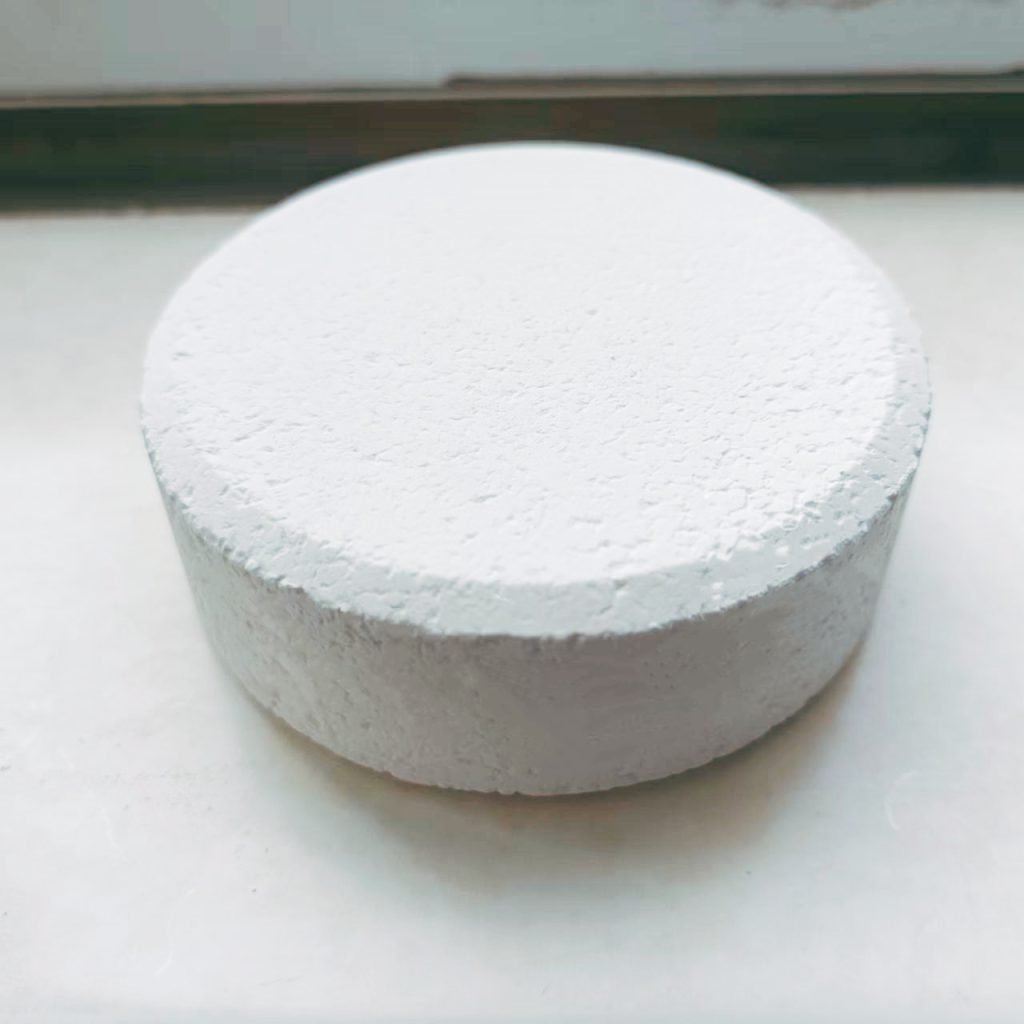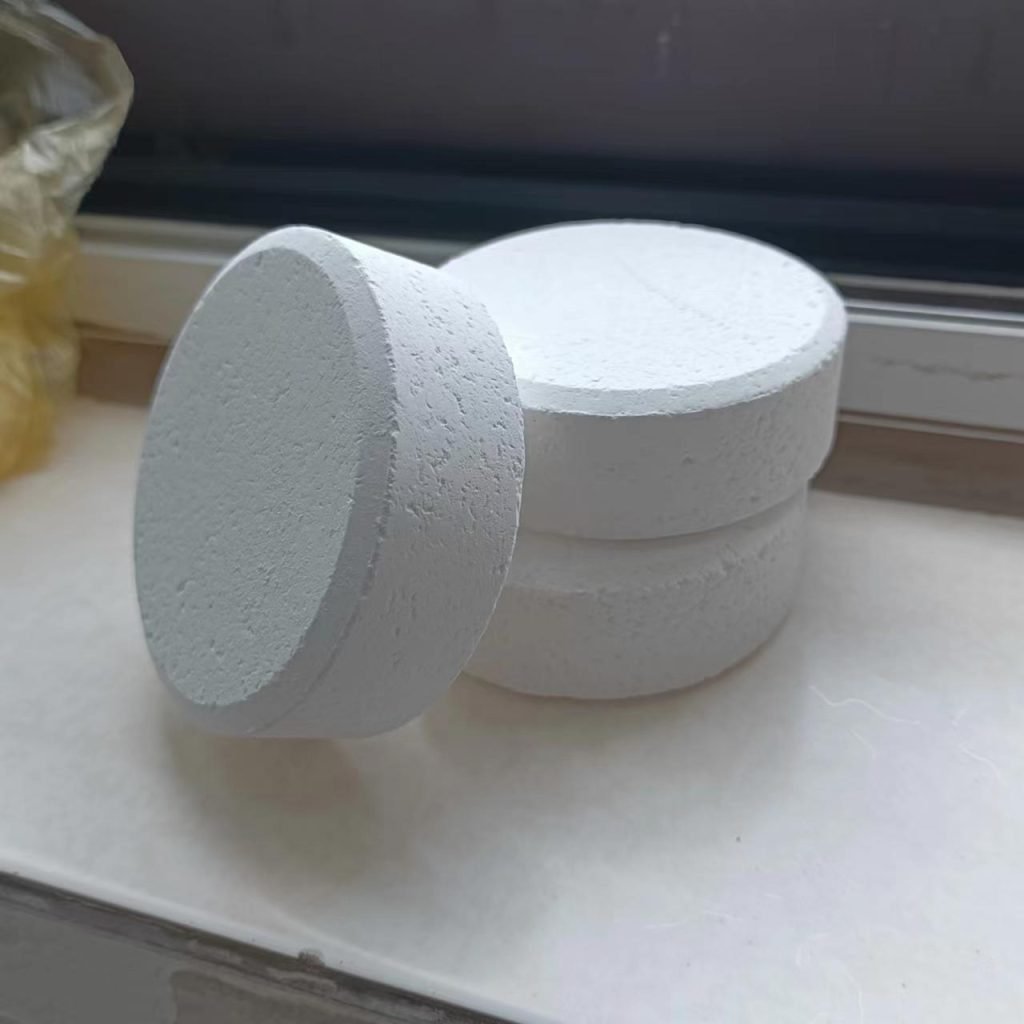Chlorine tablets are an essential part of maintaining clean, safe, and sparkling pool water. As a leading manufacturer of chlorine products, we often hear questions about how these tablets perform in different types of water. This article will explore the differences in how chlorine tablets work in soft and hard water, guiding you on how to achieve the best possible results for your pool.
I. Understanding the Basics of Soft Water and Hard Water
Before diving into the effects of chlorine tablets, it is essential to understand the distinction between soft water and hard water. Water hardness refers to the concentration of dissolved minerals, primarily calcium and magnesium.
– Soft water has a low concentration of these minerals, making it more susceptible to pH fluctuations.
– Hard water, on the other hand, contains higher levels of minerals, which can lead to scaling, cloudy water, and difficulty maintaining balanced pool chemistry.
Knowing the type of water in your area or pool can help you select the best chlorine tablet for your needs and ensure efficient pool maintenance.

II. How Do Chlorine Tablets Work?
Chlorine tablets are designed to dissolve slowly, releasing chlorine into the water over time. Chlorine acts as a disinfectant, killing bacteria, algae, and other microorganisms that can harm swimmers or make the pool unsafe. When choosing the best chlorine tablet, it is crucial to consider factors such as water hardness, tablet size, and the weight of the product. For example, 12 lbs 3 inch chlorine tablets are an excellent option for larger pools, offering consistent chlorine levels over extended periods.
However, water hardness directly impacts how chlorine tablets dissolve and perform. This difference is particularly evident in the way soft and hard water interact with chlorine.
III. Effects of Chlorine Tablets in Soft Water
Soft water, due to its low mineral content, tends to be more acidic. This can have several implications for chlorine tablet performance:
1. Faster Dissolution
Soft water lacks the minerals that naturally buffer and slow the dissolution of chlorine tablets. As a result, the tablets may dissolve more quickly, leading to a spike in chlorine levels. While this might seem beneficial, it can result in uneven chlorine distribution, requiring closer monitoring.
2. pH Imbalance
Chlorine tablets are slightly acidic. In soft water, which already has a lower buffering capacity, this acidity can cause the pH to drop further. Maintaining the correct pH range (7.2–7.6) is crucial for ensuring chlorine effectiveness and preventing damage to pool equipment.
3. Improved Clarity
On the positive side, soft water allows for quicker clearing of contaminants since there are fewer minerals to interact with the chlorine. By using the best chlorine tablet for your pool, you can achieve crystal-clear water with proper monitoring and pH balancing.
IV. Effects of Chlorine Tablets in Hard Water
Hard water presents a completely different set of challenges for chlorine tablets:
1. Slower Dissolution
The high concentration of minerals in hard water can slow down the rate at which chlorine tablets dissolve. This can result in lower-than-expected chlorine levels, which may require additional tablets or longer circulation times.
2. Scaling Issues
Hard water often causes scale buildup on pool surfaces, filters, and equipment. Chlorine interacts with calcium in the water, potentially creating calcium chloride deposits. This reduces the efficiency of your pool system and can lead to costly maintenance.
3. Stable pH Levels
Unlike soft water, hard water is naturally buffered due to its high mineral content. This makes pH fluctuations less likely, allowing chlorine to perform consistently. To maximize efficiency, products like 12 lbs 3 inch chlorine tablets are ideal, as they provide slow and steady chlorine release.
V. Tips for Using Chlorine Tablets Effectively in Both Soft and Hard Water
Regardless of whether your pool uses soft or hard water, a few universal tips can help you make the most of your chlorine tablets:
1. Test Your Water Regularly
Use a pool water testing kit to monitor pH, chlorine levels, alkalinity, and calcium hardness. Maintaining a balanced pool chemistry ensures that your chlorine tablets work optimally.
2. Adjust Dosage Based on Water Type
For soft water, reduce the number of tablets to avoid over-chlorination. For hard water, consider using more tablets or adjusting circulation to compensate for slower dissolution.
3. Use a Stabilizer
Cyanuric acid, often referred to as a pool stabilizer, helps protect chlorine from being degraded by sunlight. This is particularly important for pools in sunny regions, regardless of water hardness.
4. Choose the Right Product
Investing in the best chlorine tablet ensures superior performance and durability. For instance, 12 lbs 3 inch chlorine tablets are perfect for large pools and deliver consistent results, regardless of water type.
VI. Why Chlorine Tablet Quality Matters
Not all chlorine tablets are created equal. As a trusted manufacturer, we prioritize quality, ensuring our tablets dissolve evenly and provide long-lasting disinfection. Using high-quality chlorine products not only protects your pool but also saves you money on unnecessary repairs and maintenance. By choosing the best chlorine tablet, you can enjoy a cleaner, safer swimming experience.
VII. Conclusion: Optimizing Chlorine Use for Any Pool
In summary, the effectiveness of chlorine tablets depends largely on the water type in your pool. Soft water can lead to faster dissolution and pH imbalances, while hard water may slow dissolution and cause scaling. Understanding these differences allows you to adjust your pool care routine and get the most out of your chlorine tablets.
Remember, regular testing and proper chemical balancing are key to a healthy pool. For consistently clean and clear water, we recommend 12 lbs 3 inch chlorine tablets, which are designed to work efficiently in both soft and hard water. With the right approach, maintaining your pool will become a stress-free experience, leaving you more time to enjoy the water.
By focusing on quality and proper usage, your chlorine tablets will continue to deliver outstanding results in any water type. Make the best choice for your pool today and experience the difference!


 Instant
Quote
Instant
Quote Email
Us
Email
Us